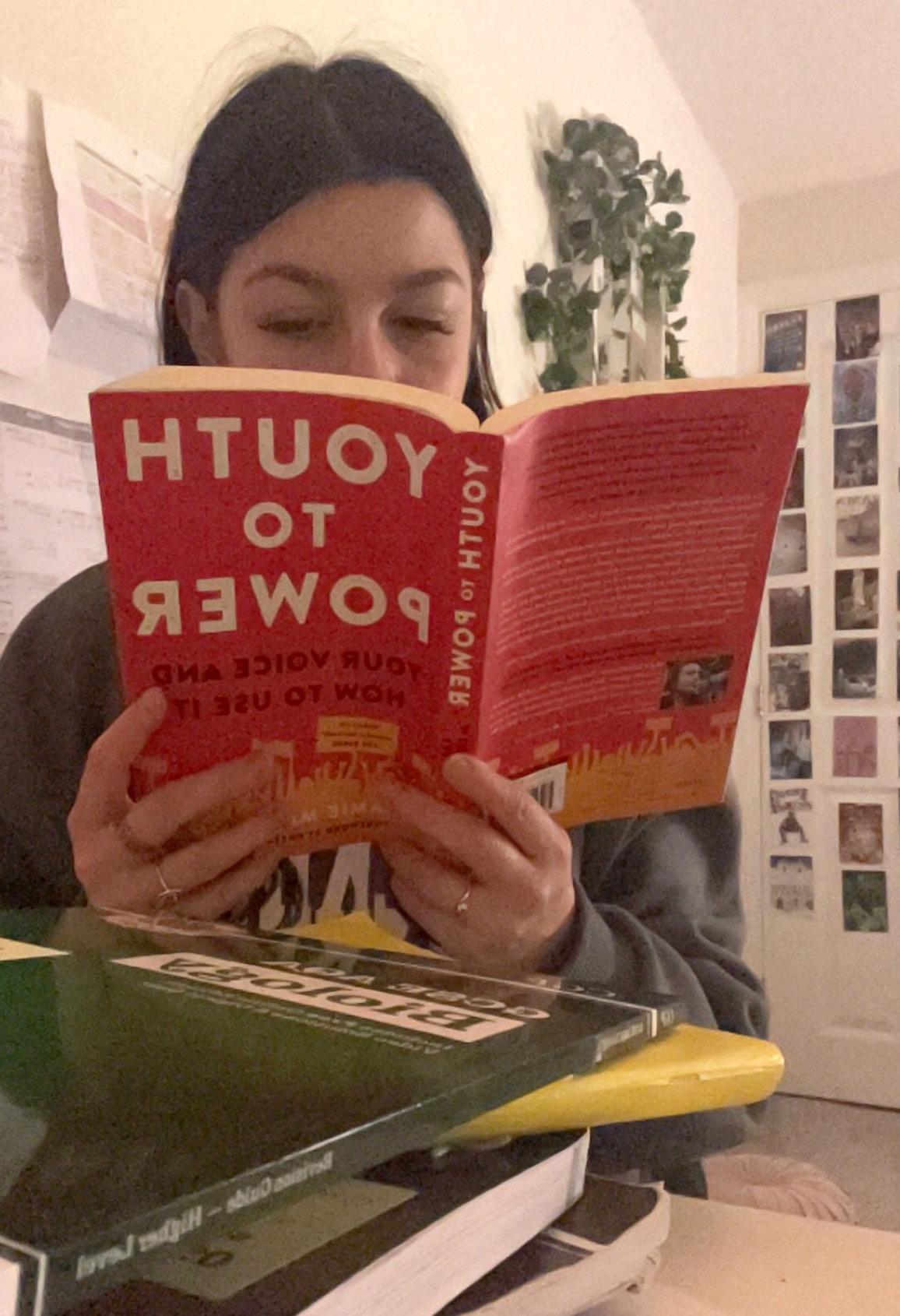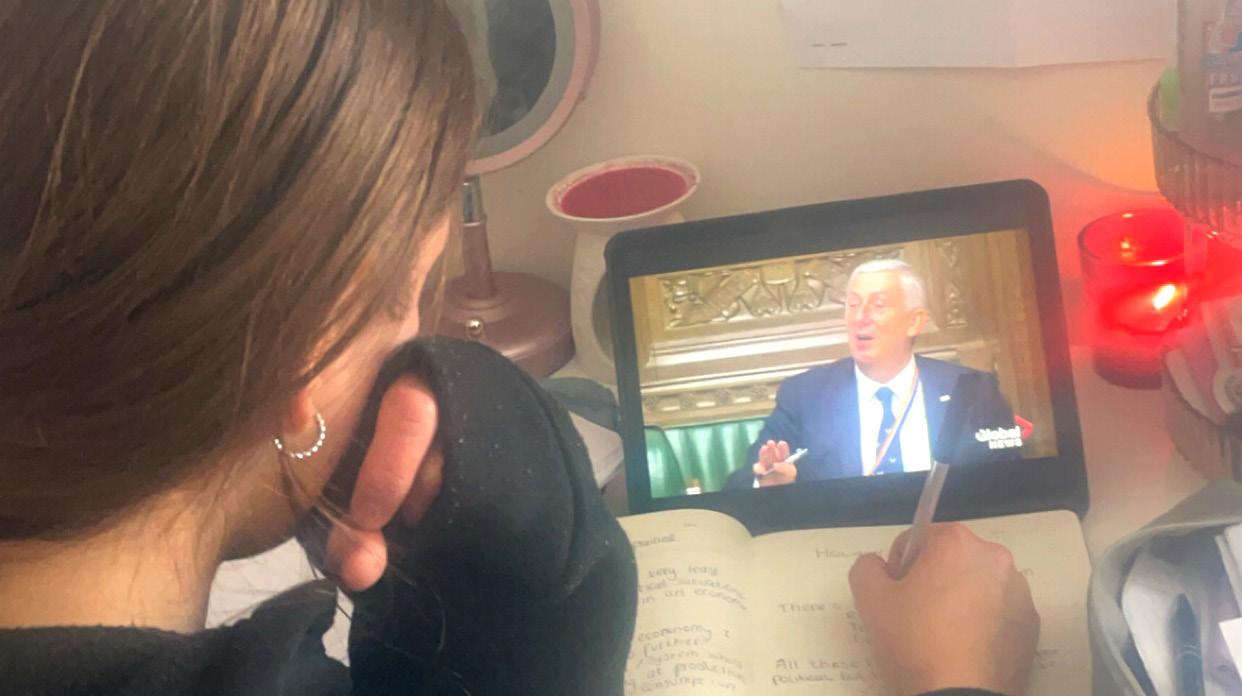Budget Buddy Budget Buddy



As the cost-of-living crisis continues, parents are increasingly burdened by the high cost of school uniforms. Taylor from Ormiston Six Villages Academy looks into this issue further.
It’s no secret that school uniforms are expensive. Ask any parent or carer. I remember going with my mum to buy my first set of school uniform in year 7 and being shocked at the total cost of it all. A full set of uniforms for the average high school student is £96.24. That’s almost £100 per student.
Moreover, pupils are pressured by the social stereotypes of having the best trainers or school shoes for example. This adds more cost to the average parent’s/carer’s pay.
I understand lowering the price of uniforms is difficult, but I believe there are ways around this problem that need to be explored. For example at my school, students that decide to wear skirts must have a specific one, from a specific brand with one pleat down the middle. In this case our skirts range from £18 to £23. These prices are extremely high for a product that will have a similar version elsewhere for much cheaper. One way to
rectify this issue would be for schools to allow other versions of the basic uniform for parents to choose from, so they can choose lower cost options.
In a recent survey, 76% of parents agreed that the cost of uniforms is too high. According to The Guardian newspaper, parents and carers said, “Schools have taken the mick on this for long enough. We’re in a cost-of-living crisis and someone needs to take a stand.”
The burden of the cost of school uniforms has only been exacerbated
by the ongoing cost-of-living crisis, where the price of everything has skyrocketed, while salaries and wages of parents have stagnated.
Recent research by the charity the Children’s Society estimated that parents in England spend £422 a year on uniforms for a child at secondary school, and £287 for primary school children.
The high cost was partly attributed to the prevalence of branded items that have to be bought from a specialist shop or the school, with pupils requiring an average of three.
I believe that schools should be promoting the use of second-hand uniforms in schools. Having secondhand uniforms, which students could purchase or borrow would lessen the pressure on parents and carers to buy new expensive items of clothing.
I strongly believe that it’s time for change. At a time when average people are struggling to afford their everyday expenses, adding further financial stress is unfair.
Nicole O’Shea from Ormiston Bushfield Academy shares her top tips for reducing the cost of cooking
Due to the cost-of-living crisis, the simple task of cooking meals has become more difficult for many people in the UK. So, here are some ways you can reduce the money spent on cooking.
1. Keep the oven and hobs as clean as possible. Any food that sticks to them will absorb the heat, making it less efficient.
2. Always use the correct size pan for the amount of food you are cooking. Using a pan that’s too big will take more energy to get to the right temperature.
3. When cooking meat, it can be worth cutting it into pieces to reduce the cooking time.
4. Certain pans are better at conducting and retaining heat. Copper pans heat up better than stainless steel pans and cast-iron pans retain heat more efficiently, so the heat won’t need to be turned up so high.
5. If you can, use a double steamer to cook vegetables so you can use one ring on the hob to cook double the amount of food.
6. When using an electric hob use flatbottomed pans so that they use all the heat and some of it doesn’t get wasted in the air.
7. Use glass or ceramic in the oven as those materials retain heat better than their metal counterparts.
8. Find out how long your oven takes to preheat, so you’re ready to start cooking as soon as it’s at the correct temperature.
9. An air fryer or slow cooker can be much cheaper to run and it still creates delicious meals. Try using either of these instead of your oven to see how much money you could save.
10. A lot of people tend to do their food shopping every week but it could be cheaper to buy in bulk and do one big shop at the end of the month.















George from Ormiston Six Villages Academy shares his thoughts on the student discounts that are on offer.
As everything is getting more expensive at the moment, I would like to propose a way to treat yourself but can still save money while doing so. One way that we can save money is through using student discounts.
There are a range of shops that offer many discounts for students, including:
ASOS
H&M
Co-op
Boots
IKEA
Dunelm
Levi’s
Urban Outfitters
Dominos
The discounts can be unlocked by using websites like Student Beans and UNiDAYS, or you might need to just show your student ID card in store. You need to be over the age of 16 to access Student Beans or UNiDAYS, and in full-time or part-time education as you’ll need to verify your student email address.
If you are in sixth form or high school you can use Student Beans.
Then you can access exclusive offers such as 10% off ASOS, free doughnuts or sausage rolls at Greggs, 50% off pizza at Dominos and much more.
Amazon Prime also offers students a free sixmonth trial as part of their student discount scheme. It gives you access to free next-day delivery, loads of Prime TV shows and movies, as well as Premier League football and other sports games.
I have spoken to some people and they have all said that a student discount would come in handy during this difficult time, but it’s not spoken about enough and not easily accessible for people that don’t know about them. It was clear through the people I spoke with that people need to be more educated on where to find these discounts.
I would like to propose these discounts being talked about more in schools to promote them for students to be able to use and make them more easily accessible.
 by Vikash Ganesh Kumar
by Vikash Ganesh Kumar
Every aspect of life in the UK is taxed, from salaries to property purchases. Atharv and Louise from Ormiston Bushfield Academy discover how these taxes are used to fund public services and support economic development.
There are several types of taxes in the UK that are paid by corporations and individuals for the development of the UK’s economy. Almost every aspect of our life is taxed, from the salary we earn, the property owned and everything else in between. The money earned by the government through taxes is eventually invested on the citizens of its country and different sectors. Income Tax is one of the main types of taxes in the UK and is paid on various forms of income.
Firstly, it is charged on the money you earn from employment, which includes your salary or wages. If you are self-employed, you also need to pay Income Tax on the profits you make, including any income from services you sell through websites or apps. Some state benefits are also subject to Income Tax.
Furthermore, most pensions are taxable. This includes state pensions, company and personal pensions. If you own property and earn rental income from it, you must pay Income Tax on that income as well. Additionally, any benefits you receive from your job, such as a company car or private health insurance, are taxable
In addition to Income Tax, there are other important taxes in the UK. One such tax is Value Added Tax (VAT), which is a tax on most goods and services you buy. Whenever you purchase something, whether it’s a new pair of shoes or a service like getting your car repaired, VAT is included in the price you pay.
Another significant tax is National Insurance. This tax helps fund state benefits like the NHS, state pensions, and other welfare benefits. Both employees and employers contribute to National Insurance.
Vikash from Ormiston Park Academy explains why it’s never too early for students to understand how to look after their money.
Managing money effectively is a crucial skill that everyone needs to learn in order to have financial freedom. So, here’s how to become money savvy with some practical tips…
Being money savvy involves making smart purchasing decisions. We should prioritise needs over wants and avoid impulsive buying.
It is important to research and compare prices before making a purchase, as this can help save money.
Additionally, students should take advantage of student discounts and learn to differentiate between essential and nonessential expenses. By being mindful of their spending habits, students can ensure that their money is utilised effectively.
Plus, students can start to think about saving money each month. Saving is important as it helps you to
plan for the future and have money for unexpected expenses.
There are many types of savings accounts that offer you different rates of interest for your money, depending on how much money you have to save. These accounts are called instant or easy access accounts, fixed-rate accounts and notice savings accounts.
It’s also worth exploring ISAs. Individual Savings Accounts (ISAs) are tax-free savings accounts available to adults in the UK. ISAs offer tax benefits, as income earned within these accounts is exempt from income tax, capital gains tax, and dividend tax. By learning about ISAs, students can take advantage of these benefits and grow their money over time when they reach 18.
Becoming money savvy is a valuable skill that students should cultivate to secure their financial future. By understanding the benefits of ISAs and other savings accounts, students can increase their money over time.
Additionally, making smart buying decisions and managing expenses wisely are essential in maintaining financial stability. By adopting these practices, students can navigate their financial journey responsibly and achieve their financial goals.

Nicola Lis from Ormiston Bushfield Academy explains the economic crisis, how the economy works and some of the policatl terms you may have heard.
So, as we may at the very least know from current political situations, the United Kingdom is in an economic crisis!
What actually, is an economy I hear you ask? Look no further!
An economy is an area/system whose primary aspect is looking at production, distribution, trade and consumption of goods and services.
To explain how economy works, it is quite simple!
It’s just the British governments statistics on the development of international trades and how well Britain represents itself in comparison to other nations. Currently, the UK stands as the sixth largest economy in the world.

However it’s not all glitz and glam…
There’s something called:
Recession?
Inflation?
Cost of Living?
All of these terms may seem super political but to grasp this is quite simple
A recession is a prolonged downturn within an economy, which causes significant effects on numerous areas such as employment. This differs to depression as it is a severe drop in GDP (Gross Domestic Product).
So that brings us to inflation, which is the increase in price over a short period of time. Why is this so significant?
Because it leads to COST OF LIVING! (crisis)
I’m sure everyone has heard about how expensive everything is and how a literal phrase ‘cost of living’ but what actually is it?
Why is it a crisis?
It raises the cost of basic essentials, such as food and medicine as well as non-essential goods, making prices higher for everyone.
That’s all in todays economic EXPLODE!

Salman Haqqi and Lucinda O’Brien, Personal Finance Editors from comparison site money.co.uk, answer the financial questions students really want to know.
Is it better to use a debit card or credit card?
Salman: It depends on your situation. A debit card uses money directly from your bank account, so you can only spend what you have. This helps you avoid debt. A credit card, however, lets you borrow money up to a certain limit, which you have to pay back later. If you use a credit card responsibly and pay it off in full each month, it can help build your credit score and even earn points to redeem as rewards such as air miles or discounts at select stores.
However, if you don’t pay it off, you can accumulate debt and interest charges.
What happens if you never pay off your credit card debt?
Salman: If you never pay off your credit card debt, it can lead to several problems. Interest charges will continue to accumulate, making the debt grow larger over time. This can damage your credit score, making it harder to borrow money in the future.
You might also face legal action from the credit card company, which can result in court judgments and additional fees.
Ultimately, unpaid debt can lead to severe financial stress and limit your financial opportunities.
Lucinda: Being in debt can feel overwhelming, but the first step is to address how much money you owe. Look at all your finances and work out the value of the debts as this will help you to create a plan for paying it off.
Then, establish a monthly budget which includes paying off some of the debt each month. You can decide whether you want to pay off smaller debts first or tackle bigger expenses, but remember to check how much interest you are paying on these debts. The greater the interest, the more money you’ll have to pay in the long-term, so try and clear those first.
Salman: A credit score is a number that represents your creditworthiness, or how likely you are to repay borrowed money. These scores range from 0 to 999 and are calculated by specific credit referencing agencies. The higher your score, the better. Your credit score is affected by factors like your payment history, how much debt you have, and how long you’ve had credit accounts.
A good credit score can help you get better interest rates on loans and credit cards, while a low score can make borrowing more expensive and harder to obtain.
Lucinda: Saving money each month is important as this will help you to reach a saving goal - like buying a house or paying university fees - or it can build a rainy day fund for unexpected expenses. Whatever your motivation for saving, it’s always a good idea to start this journey. First, look at all your outgoings and establish how much you can save by creating a monthly budget.
If you are struggling to find any spare money, track spending to see if there are expenses you can cut back on. For example, are you paying for any apps you don’t use anymore?
What is the difference between simple vs compound interest?
Lucinda: Simple interest is calculated on the initial amount of money and grows at a steady rate. However, compound interest is calculated on the initial amount plus any interest earned, so your money can grow faster over time.
Salman: Pensions are savings plans that help you save money for retirement. There are different types of pensions, but generally, you and/or your employer contribute money to a pension fund while you are working. This money is then invested in different things like stocks & shares, real estate, or other investments so it can grow over time.
When you retire, you use the money in your pension fund to provide an income for yourself. It’s like having a savings account for your future self.
Tel: 0121 236 5100
Email: info@ormistonacademies.co.uk
Web: www.ormistonacademiestrust.co.uk